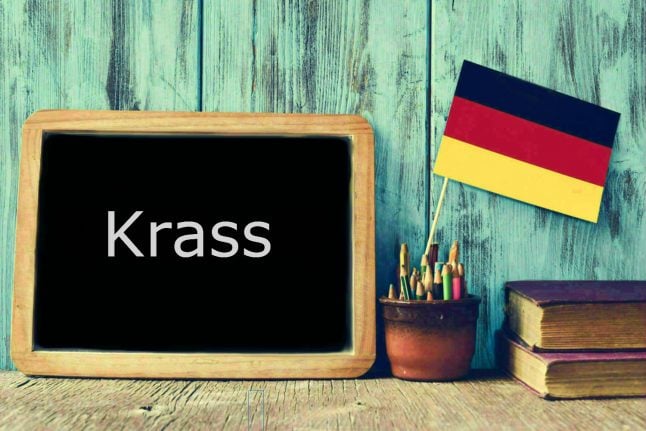Want to improve your Umgangssprache (colloquial speech)? Krass is a very popular German word that will make you sound like a local.
It originates from the Latin “crassus”, meaning “gross” of “coarse”. In German, though, the word literally means “blatant” or “stark”, but is generally employed colloquially to intensify meaning.
If you think something is really fantastic, it can be described as krass. If something is dreadful, it’s also krass. If it’s hilarious, it’s krass, and if it’s disgusting, it’s krass.
Whether krass is being used in a positive or negative sense is usually deduced from context. It's not a word you would use in an academic setting or around new colleagues, but rather within your circle of friends or people who you already know well.
An 'Easy German' video with examples of krass and geil, another popular slang term.
Examples:
Der Typ ist ein krasser Idiot.
The guy is such an idiot.
Das Café ist krass, da kann man den besten Kaffee in der Stadt kaufen.
The cafe is really great, you can get the best coffee in town here.
—
Do you have a favourite word you'd like to see us cover? If so, please email our editor Rachel Stern with your suggestion.



 Please whitelist us to continue reading.
Please whitelist us to continue reading.
Member comments